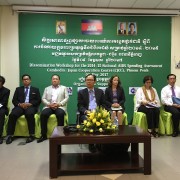
The National AIDS Spending Assessment, known as NASA, is a very important study that provides data on the actual spending in the country for HIV/AIDS in a year from all sources. While I will not give away the very interesting findings that will be presented by the investigators, I do want to talk about domestic resources and the move towards sustained epidemic elimination in Cambodia.
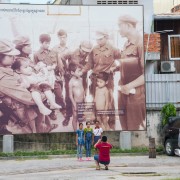
The U.S. government announced $5.8 million in additional endowment support to the Documentation Center of Cambodia (DC-Cam) that will boost the sustainability of the organization and its efforts to promote national peace and reconciliation through the preservation (both physically and digitally) of Cambodia’s Khmer Rouge-era historical records.
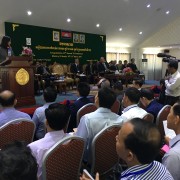
There has been important progress made in fighting TB in the last two decades, both globally and here in Cambodia, and I want to congratulate the Ministry and the National TB Program on that success. But globally TB remains a major problem. Every year over ten million people are infected, and nearly 2 million lose their lives to TB. Over 4 million of those who fall ill each year do not receive a proper diagnosis or notification of their illness, leading to drug-resistant forms of TB and longer, harsher, and more expensive treatments.
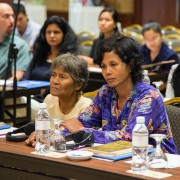
Current estimates indicate that 14.2 percent of Cambodian adults 35 years old and older suffer from some form of post-traumatic stress disorder – a figure nearly six times higher than that of the United States. It is estimated that intergenerational trauma - that is trauma passed on from parents to children - is rampant. Cambodians 35 and younger– most of who are too young to have remembered the Khmer Rouge – also suffer from abnormally high rates of PTSD.
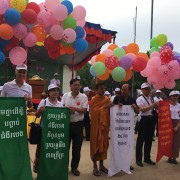
On March 24, the global health and scientific community gathered in Washington, DC, and around the world, to celebrate World TB Day, and we’re gathered here to mark the occasion as well.








Comment
Make a general inquiry or suggest an improvement.